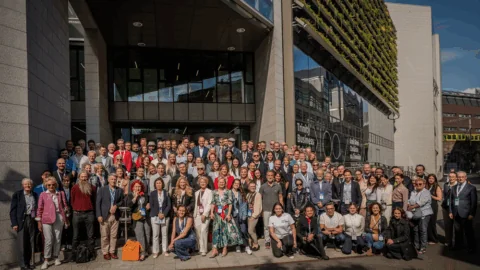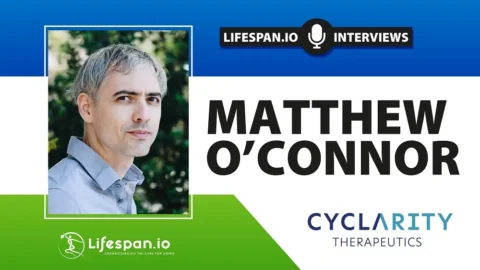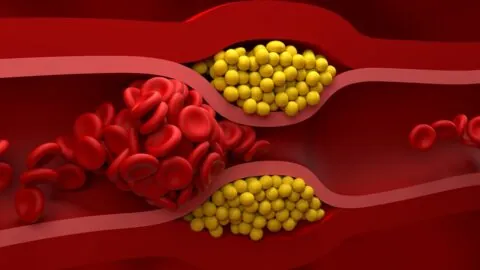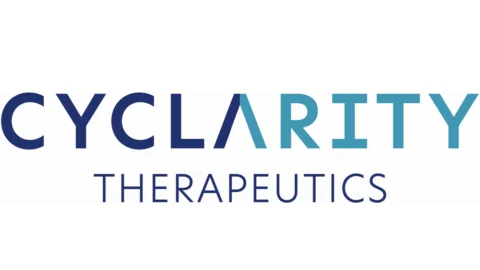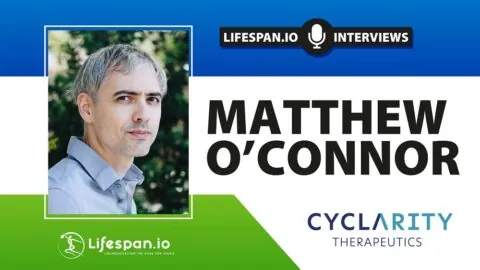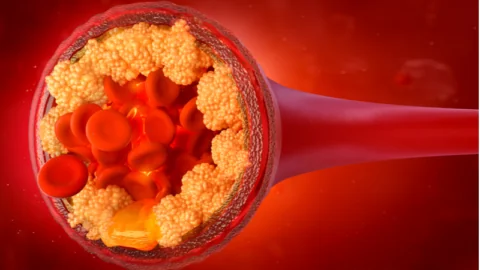Cyclarity Therapeutics

Organization Description
Cyclarity Therapeutics (formerly Underdog Pharmaceuticals) is a clinical-stage biotech startup that develops small molecules that remove 7-ketocholesterol (7KC) from cells as an approach to preventing and treating atherosclerotic cardiovascular disease (ASCVD) and other diseases of aging. The company is a spinout of Lifespan Research Institute (formerly SENS Research Foundation), co-founded by LRI’s Matthew (“Oki”) O’Connor, Ph.D. and Michael Kope.
7KC is an oxidized form of cholesterol serves no useful purpose in the human body and is toxic to cells. In ASCVD, 7KC is formed through the nonenzymatic oxidation of cholesterol in LDL particles and within the atherosclerotic plaque, and recruit macrophages to engulf them. 7KC is toxic to macrophages, leading to their loss of autophagy and become dysfunctional foam cells, immobilized in the artery wall. Such macrophages also lose the ability to engulf and clear other damaged macrophages (efferocytosis), leading to a vicious cycle.
In addition to ASCVD, 7KC is implicated in multiple other diseases of aging and orphan diseases, including age-related macular degeneration (ARMD), Alzheimer’s disease, sickle cell anemia, and multiple sclerosis (MS).
Cyclarity uses computational and synthetic chemistry to develop modified cyclodextrins that remove 7-ketocholesterol from macrophages/foam cells and other cells in our body, thus potentially restoring cell function and preventing or reversing diseases driven by 7KC. Cyclodestrins are a class of cyclic carbohydrate molecules that are highly safe and widely used in food, cosmetics, and drug delivery well-known and safe molecule. Their lead drug candidate is a cyclodextrin dimer known as UDP-003.
In September 2021, Cyclarity announced that they had been awarded an Innovation Passport under the United Kingdom’s Innovative Licensing and Access Pathway (ILAP) to accelerate their progress on ASCVD. ILAP was introduced in January 2021 by the UK’s “FDA” (the Medicines and Healthcare products Regulatory Agency (MHRA)) to accelerate development of and access to promising medicines of significant potential to benefit public health. The program provides for enhanced early actions with MHRA, the National Institute for Health and Care Excellence (NICE), and the National Health Service (NHS) to smooth the way toward regulatory approval and clinical adoption.
In June 2022, Cyclarity moved its headquarters to the Buck Institute for Research on Aging.
In January 2025, Cyclarity announced that they had secured regulatory approval to begin its first-in-human clinical trial of UDP-003. The trial will be conducted in Australia, led by prominent cardiologist Dr. Stephen Nicholls of the Victorian Heart Institute (VHI) in partnership with Monash University. In addition to a pharmacokinetic Phase I trial, they are authorized to perform a safety trial in 12 volunteers with Acute Coronary Syndrome (ACS) and gather preliminary evidence of efficacy.
Later that month, Cyclarity closed the first tranche of its Series A funding round, led by Ki Tua Fund LP and Starbloom Primrose LP, which enabled it to commence clinical trials.
Αt the 2025 Longevity Summit Dublin, Dr. O’Connor told LRI’s Steve Hill that the first five dosing levels of their Phase I clinical trial of UDP-003 were complete, with no observed adverse reactions, and that they were planning for a 150-person Phase II trial in Europe. He also said that they were developing an AI-based system to optimize cyclodextrin drug development, and that they were working to develop new molecules to remove environmental contaminants such as nanoplastics, bisphenol-A (BPA) and PFAS (“forever chemicals”) from the body.


